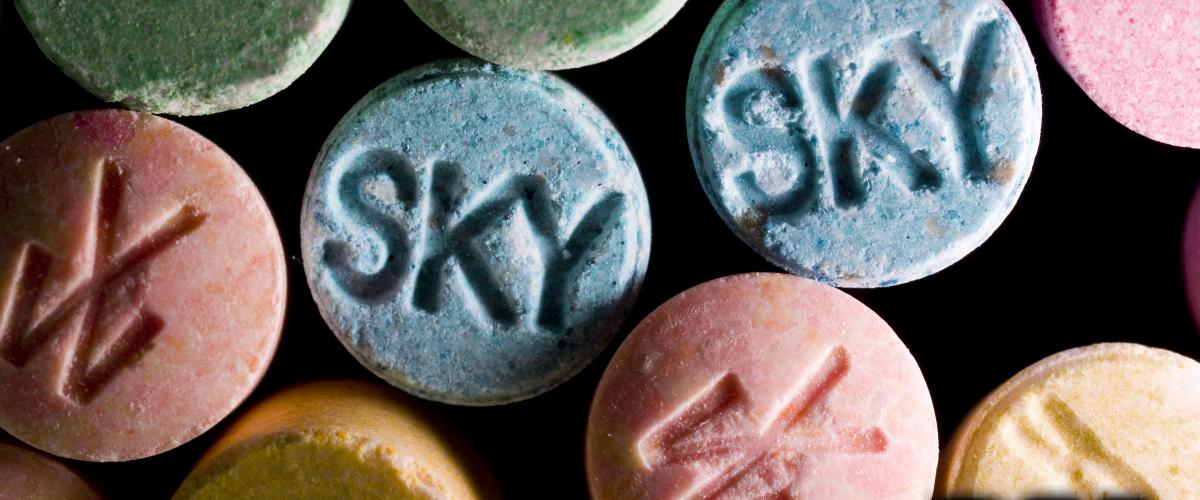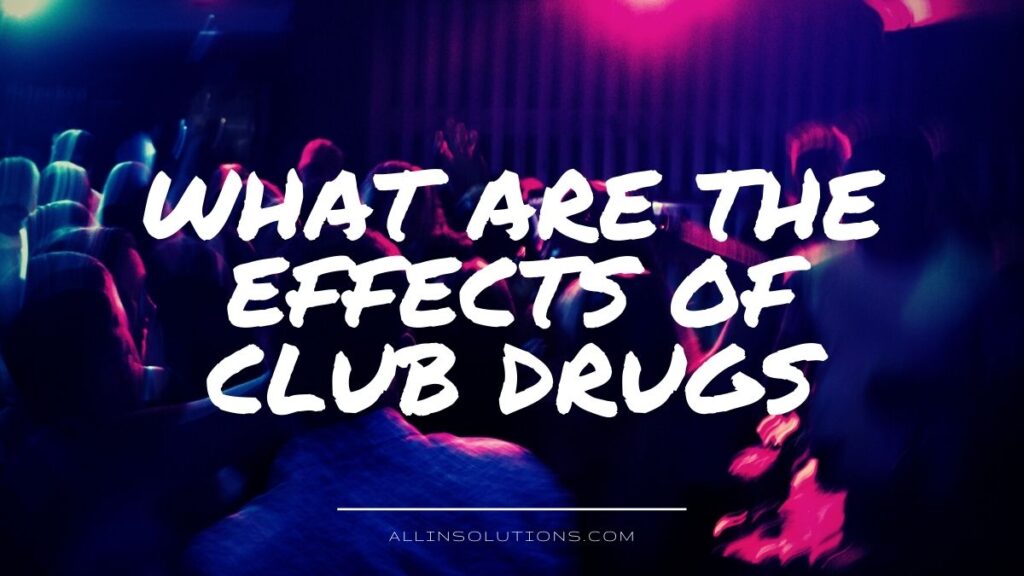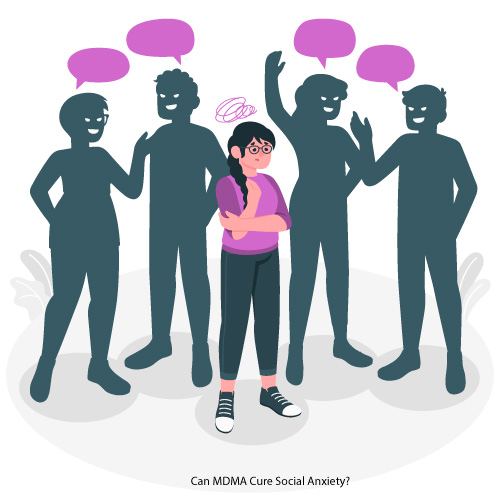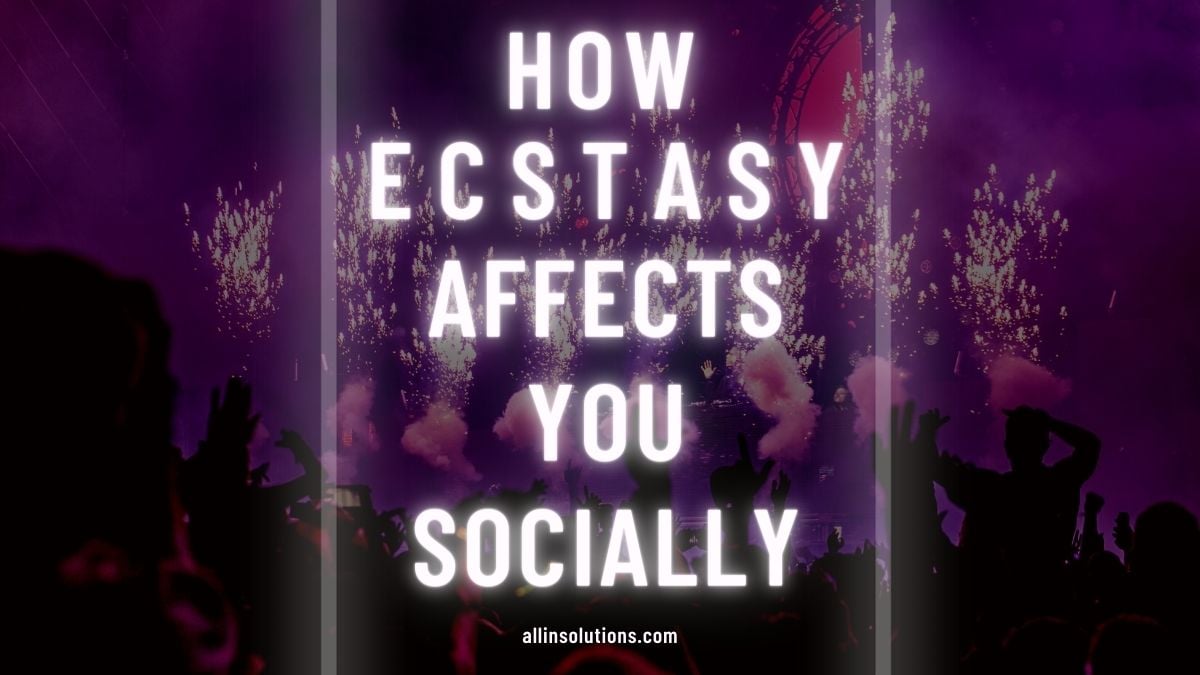3,4-methylenedioxymethamphetamine, or MDMA and ecstasy for short, is a recreational drug that’s often used in social and party settings. It can increase the activity of at most three neurotransmitters, serotonin (dopamine), and norepinephrine. Ecstasy, like other stimulants, increases the neurotransmitter release and blocks their reuptake. This allows them to flood the brain. These effects can include an increase in energy, mood, empathy, and compassion for others. This last effect begs the question: How does ecstasy affect your social life?
MDMA Social Effects
Many people report Ecstasy’s social effects. This includes the alleged feeling of empathy and closeness that is attributed to the drug. This is why MDMA is often used recreationally, as well as in social settings such as music festivals, clubs, and parties.
Animal studies have shown that ecstasy can have a social effect on animals. Although the details are not clear, it is believed that ecstasy can affect your social life by increasing your mood.
Researchers compared MDMA’s effects to methamphetamine’s effects and found that MDMA produced a positive response in healthy young adults to affective touch (low-force mechanical stimulation) and increased visual attention to emotions on peoples’ faces. Study results showed that MDMA selectively increased ratings of the pleasantness and affective touch of MDMA as well as greater attention to happy faces.

Ecstasy’s Long-Term Social Effects
Although this may sound appealing, what long-term social effects will ecstasy have on you? MDMA can alter your mood by manipulating brain levels of mood-linked chemicals such as dopamine or serotonin. Long-term use can cause brain damage.
This is a common problem for users of similar drugs like methamphetamine. As the brain gets used to being stimulated, it becomes lazy and forgets how to balance and release these chemicals.
MDMA long-term abuse can lead to addiction and can negatively affect the user’s mental well-being. This can impact their ability to socialize with others and their ability to make connections.
There are also issues with the ingredients. The illegal drug Ecstasy, which is made without a license, is not subject to any regulations. Drug dealers may mix Ecstasy with other substances to increase the drug’s risk.
The gateway to other, more dangerous drugs can be opened by drug use. Dependence on MDMA for socialization is a dangerous habit that can lead you to an addictive lifestyle.
Related reading:

Can MDMA cure social anxiety?
Many people have suggested MDMA as a treatment for social anxiety. However, it is not an easy concept. Contrary to popular belief MDMA does not cure social anxiety.
Although the drug may increase empathy and socialization, the side effects are temporary and do nothing to change the person’s actual symptoms. Although one might experience some emotional highs from taking the drug, this does not mean that there will be any real improvement in their symptoms.
Anxiety disorders aren’t just emotional. These disorders are also caused by chemical imbalances and brain structure. MDMA has not been shown to regulate these factors. Because ecstasy stimulates various chemicals including serotonin activity, it is more likely that problems such as serotonin syndrome will occur than any relief of social anxiety for long-term users.

Do you need help with MDMA abuse?
MDMA has been touted as a panacea for social anxiety. However, there is no evidence to support this claim. MDMA, like all other drugs, has many disadvantages. Any consumption of MDMA for therapeutic purposes would be done in a medical setting, not a recreational one.
Addiction is one of the many risks associated with long-term ecstasy use. Although ecstasy is not addictive like opioids and cocaine, it can be used to relieve stress and socialize.
Users may develop a dependence on the drug over time to simply have fun. This is dangerous for many reasons. Some users may even consider using stronger drugs like methamphetamine or cocaine to increase their enjoyment.
Drug use can quickly spiral out of control. It’s crucial to seek help immediately if you notice any signs of drug abuse in your loved one. Our New Jersey and Florida addiction treatment programs can help if you or someone you love is suffering from ecstasy addiction.
Our facility provides ecstasy addiction therapy that includes a variety of services to address clients’ psychological and physical needs. Call All In Solutions Treatment Centers at 855-762-3796 today to learn more about our treatment programs.
Did you miss our latest article: What Happens When You Mix Caffeine & Marijuana?





